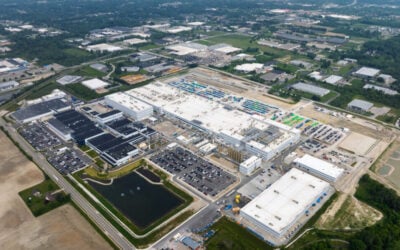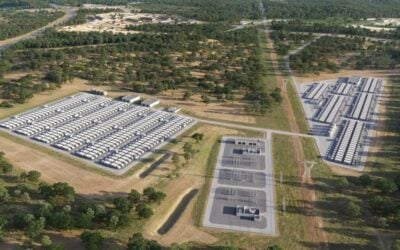
South Africa needs to prioritise grid-located battery storage if it is to overcome the ongoing ‘load-shedding’ power outage crisis plaguing the country.
A new report from the International Institute for Sustainable Development (IISD) has found that national grid storage systems should be an immediate priority, alongside new renewables generation capacity, to ease pressure on the grid, optimise its efficiency and combat load shedding.
Enjoy 12 months of exclusive analysis
- Regular insight and analysis of the industry’s biggest developments
- In-depth interviews with the industry’s leading figures
- Annual digital subscription to the PV Tech Power journal
- Discounts on Solar Media’s portfolio of events, in-person and virtual
By May 2023, this year had already seen more scheduled power cuts than the entirety of 2022, the report said. Deployment of batteries in commercial & industrial (C&I) and residential markets has been growing in South Africa as consumers look to protect themselves from load-shedding, but the report calls for a concerted effort at the national and municipal level for grid-scale energy storage.
“While deployment of batteries at commercial, industrial, and residential sites is accelerating, the rollout is happening in an uncoordinated manner, primarily as a self-funded response to worsening load shedding,” says Richard Halsey, policy advisor at IISD and the lead author of the ‘Watts in Store’ report. “South Africa needs national and municipal grid storage strategies, which will provide a positive signal to the energy storage industry that it can safely develop supply chains.”
The report said that deploying energy storage with solar PV will help in reducing demand for coal supply from Eskom, South Africa’s national grid operator which primarily provides coal-fired generation, as well as optimising the existing grid capacity by decoupling electricity generation and supply times and adding flexibility to the country’s brittle and fragile transmission system.
Peak shaving – where potential excess power supply at off-peak times can be stored and used to lessen the spike in supply needed at peak hours – is another benefit that battery energy storage system (BESS) can provide and would contribute to the general levelling out of Eskom’s grid and create a more stable generation curve.
BESS could also be a cheaper alternative to full-scale grid expansion in the short term, widening the reach of the power network by deploying batteries for use at peak times to areas where costly and time-consuming grid infrastructure is yet to reach.
Pumped hydro is also a part of South Africa’s energy makeup, and the report found that it can play a significant role as a supporting technology to lithium-ion battery storage. It offers longer duration storage but requires a lot of time to build, which precludes it from contributing in the short term.
Ultimately, the report said that grid-scale batteries should be an immediate priority for South Africa. As it stands there is no government energy plan for the future development of energy storage, despite the significant growth of the global market and the almost 80% drop in the cost of lithium-ion batteries since 2013.
The majority of planned grid storage projects are delayed, it said, with deadlines for IRP and Eskom projects extending and finances yet to be secured.
Halsey said: “With the current electricity crisis requiring fast and effective measures, grid batteries can be an important part of the solution.”






